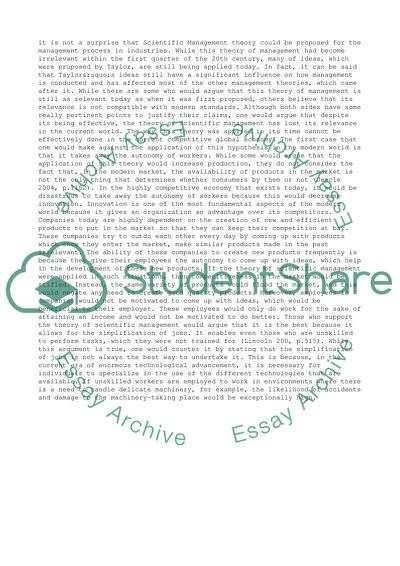Cite this document
(Is There relevance to the Present Day of Scientific Management Essay - 6, n.d.)
Is There relevance to the Present Day of Scientific Management Essay - 6. Retrieved from https://studentshare.org/management/1463576-scientific-management-was-the-product-of
Is There relevance to the Present Day of Scientific Management Essay - 6. Retrieved from https://studentshare.org/management/1463576-scientific-management-was-the-product-of
(Is There Relevance to the Present Day of Scientific Management Essay - 6)
Is There Relevance to the Present Day of Scientific Management Essay - 6. https://studentshare.org/management/1463576-scientific-management-was-the-product-of.
Is There Relevance to the Present Day of Scientific Management Essay - 6. https://studentshare.org/management/1463576-scientific-management-was-the-product-of.
“Is There Relevance to the Present Day of Scientific Management Essay - 6”, n.d. https://studentshare.org/management/1463576-scientific-management-was-the-product-of.


